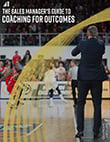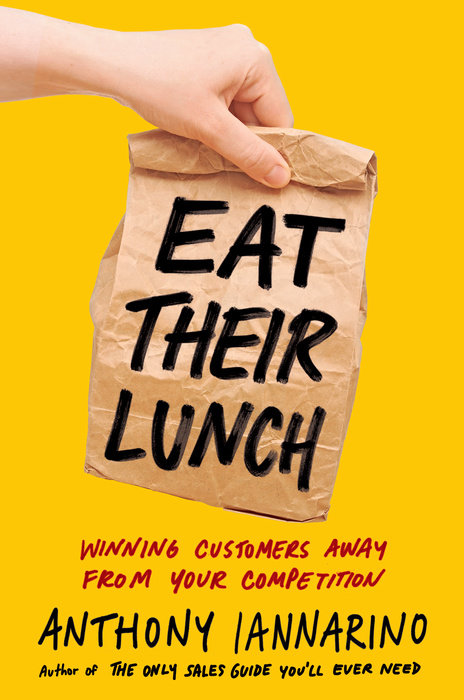The Gist:
- Some salespeople try to acquire a meeting by mentioning their prospective client’s direct competition.
- This approach is problematic because it implies that you’ll share confidential information that will somehow benefit your prospective client, making you untrustworthy.
- A better approach is to speak about your experience in your prospective client’s industry, something that shows both your expertise and your integrity.
One of the gambits that salespeople are taught to use is to claim that they are working with their prospective client’s competitor, often even naming the competitor. This move is supposed to imply that the competitor has a hidden advantage, motivating the prospective client to hire the salesperson to find out more.
Mentioning your client’s competitor preys on their insecurity, implying that they have to work with you to get the scoop on their competition. There are a number of problems here, all of which are easily solved by a better and much more professional approach. Instead of hinting at intrigue, you need to trade value for the time you are asking your contact to give you.


The Problem with the Competitor Gambit
The problem with this low-integrity gambit is that it presents you as a spy, not a trusted partner. By offering to reveal anything you know about one of your prospective client’s competitors, including the nature of your partnership, you broadcast to your prospective client that you’d do the same thing to them to get an appointment. The kind of person who trades private information about their clients isn’t the kind of person people want to do business with. In fact, decision-makers who are concerned about the safety and security of their confidential information often prefer to work with companies that are not also serving their competitors (I fall into this category).
But for the sake of argument, let’s say the gambit works. You sit down with your prospective client, having promised to tell them exactly what you are doing to help their competitor, and they ask you flat-out to spill the proverbial beans. What exactly are you going to tell them that they couldn’t deduce from what they know about your company? What do you think your existing client would want you to share directly with their competitor? Most mature, well-adjusted, confident decision-makers already understand the differences between what they do and what their competitors do. More to the point, they don’t care much what their competitors specifically do: they are trying to differentiate themselves as better, not to copy someone else’s tactics.
If you’ve been trained to use a legacy approach to sales, your slide deck probably includes the logos of the other companies you are working with, including some that your prospect sees as direct competitors. Those logos can project your priorities, implying that big spenders will demand more of your time and attention. But when your prospective client asks what kind of value they can expect compared to their larger competitor, one that is certain to spend more, you can find yourself in a difficult situation. Chances are, your prospective client doesn’t believe their logo is going to make it onto your slide deck.


You Never Have to Kiss and Tell
Even if you do work with competing clients, you never have to use the words “your competitor.” And you certainly don’t have to reveal what you do for another client, especially not without their permission. When contacts know what you sell, it isn’t difficult to guess what you might be doing with other companies in their industry.
The industry is the key: instead of saying “we are working with your competitor,” try this: “we have been doing some work in your industry, and we have found a number of things that can improve results in your field.” This approach still demonstrates that your industry expertise can help your prospective client succeed, but it also shows them what kind of professional you are—and that they can trust you with their decisions and their data.


A Warning About Manipulative Tactics
Although these sketchy, manipulative tactics sometimes work, there is never a reason to trade your integrity or your professionalism for a meeting—or a deal. Bragging that “I was just talking to your competitor and they said . . . ” projects what kind of person you are. It also suggests that you need to improve your ability to command a meeting. Tactics like these are why the sales profession has a negative reputation.
Avoid anyone who tells you to do “whatever it takes” to win a deal, especially when “whatever” would cause you to discard your values, your integrity, your honor, or your character. Instead, channel that energy into improving your approach, doubling your effort, and working to create greater value than anyone else.
Do Good Work:
- Never use an approach that would cause your prospective client to question your integrity.
- Avoid any strategies or tactics that would cause someone not to trust you.
- Treat everything your clients share with you as confidential, and if another client asks you to break that confidence, refuse to answer.

Essential Reading!
Get my 3rd book: Eat Their Lunch
"The first ever playbook for B2B salespeople on how to win clients and customers who are already being serviced by your competition."
Buy Now







.jpg?width=768&height=994&name=salescall-planner-ebook-v3-1-cover%20(1).jpg)


